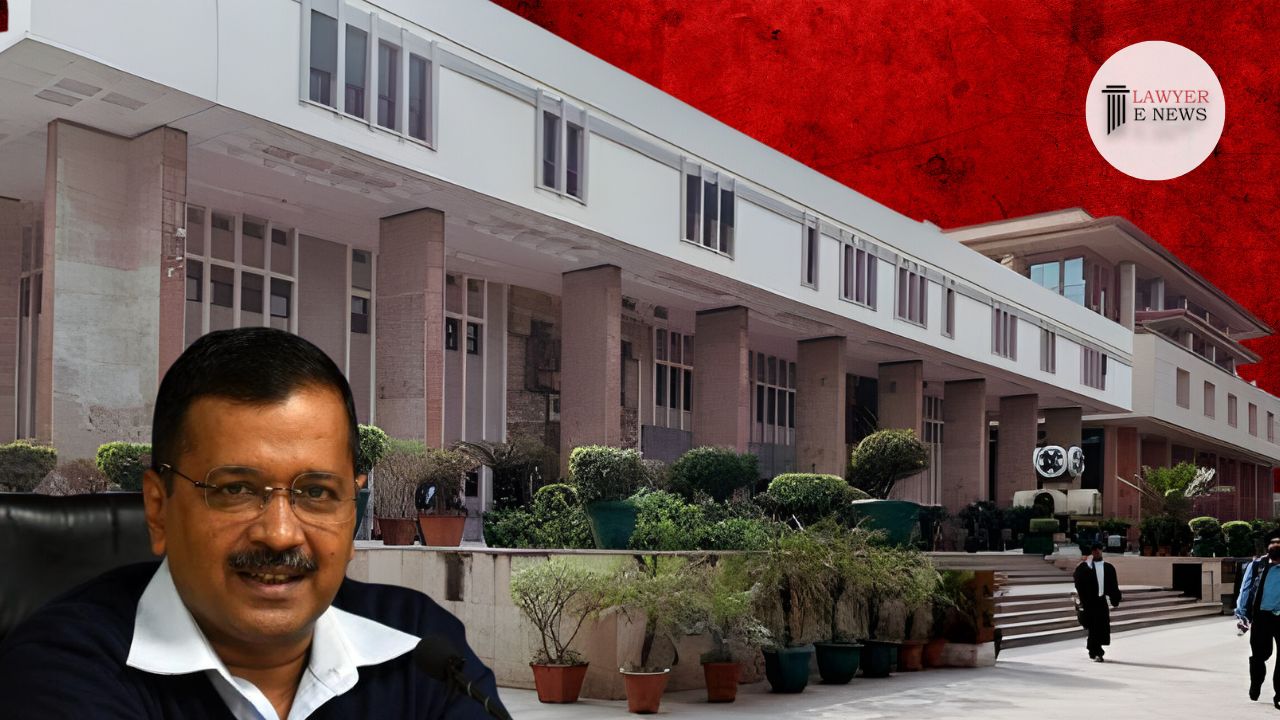-
by Admin
15 February 2026 5:35 AM



Vacation Judge’s Order Overturned; Bail Case Referred to Roster Bench for Further Consideration.
The Delhi High Court has stayed the bail granted to Arvind Kejriwal by a Vacation Judge in connection with the Delhi Liquor Scam case. The Directorate of Enforcement (ED) challenged the bail, arguing that they were not given a fair opportunity to oppose it and that crucial legal provisions were overlooked.
The case stems from alleged irregularities in the formulation and implementation of the Delhi Excise Policy for 2021-22. The Central Bureau of Investigation (CBI) initially registered an FIR against several individuals, including Delhi Deputy Chief Minister Manish Sisodia, under various sections of the Indian Penal Code (IPC) and the Prevention of Corruption Act. Following this, the ED began investigating the money laundering aspects linked to the case.
Arvind Kejriwal was arrested by the ED on March 21, 2024, after allegedly failing to comply with multiple summonses. He subsequently secured bail from a Vacation Judge on June 20, 2024, which the ED contested, leading to the current proceedings.
The ED argued that the Vacation Judge denied them a proper opportunity to present their case, violating Section 45 of the Prevention of Money-Laundering Act (PMLA). The court observed, “The Vacation Judge has not passed the Impugned Order after due consideration of entire material on record,” highlighting a procedural lapse.
The High Court noted that the Vacation Judge should have adhered to the findings of a Co-ordinate Bench, which had previously addressed similar issues on April 9, 2024. “The findings as given in judgment dated 09.04.2024 were binding on the Vacation Judge,” the court stated, emphasizing the importance of judicial consistency.
The High Court found fault with the Vacation Judge’s observation of mala fide intent in the ED’s actions. It pointed out that the Co-ordinate Bench had cleared the ED of such allegations, noting, “The Vacation Judge should not have observed mala fide on the part of ED particularly in light of the observation made in judgment dated 09.04.2024.”
The ED contended that Kejriwal had a vicarious liability under Section 70 of the PMLA, arguing that proceeds of the crime were used for the Aam Aadmi Party’s (AAP) election campaign in Goa. The High Court noted that the Vacation Judge failed to consider this aspect adequately. Additionally, the High Court criticized the Vacation Judge for not properly applying the twin conditions under Section 45 of the PMLA, which are mandatory for granting bail in money laundering cases.
While acknowledging the importance of personal liberty, the High Court highlighted that procedural fairness and adherence to legal requirements are paramount. The court remarked, “The personal liberty of a person is supreme, but it cannot be deprived except with the procedure established by law.”
Justice Sudhir Kumar Jain, emphasizing the procedural lapses, stated, “The perusal of the Impugned Order is reflecting that the Vacation Judge has passed the Impugned Order without going through and appreciating the entire material brought on record by the rival parties which reflects perversity in Impugned Order.”
The High Court’s decision to stay the bail granted to Arvind Kejriwal underscores the judiciary’s commitment to procedural fairness and adherence to legal norms. By referring the matter to the Roster Bench for further consideration, the court has ensured that all aspects of the case will be thoroughly examined, setting a precedent for the handling of similar cases in the future.
Date of Decision: June 25, 2024
Directorate of Enforcement vs. Arvind Kejriwal
